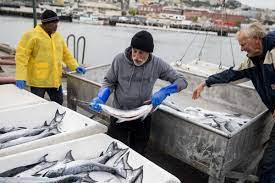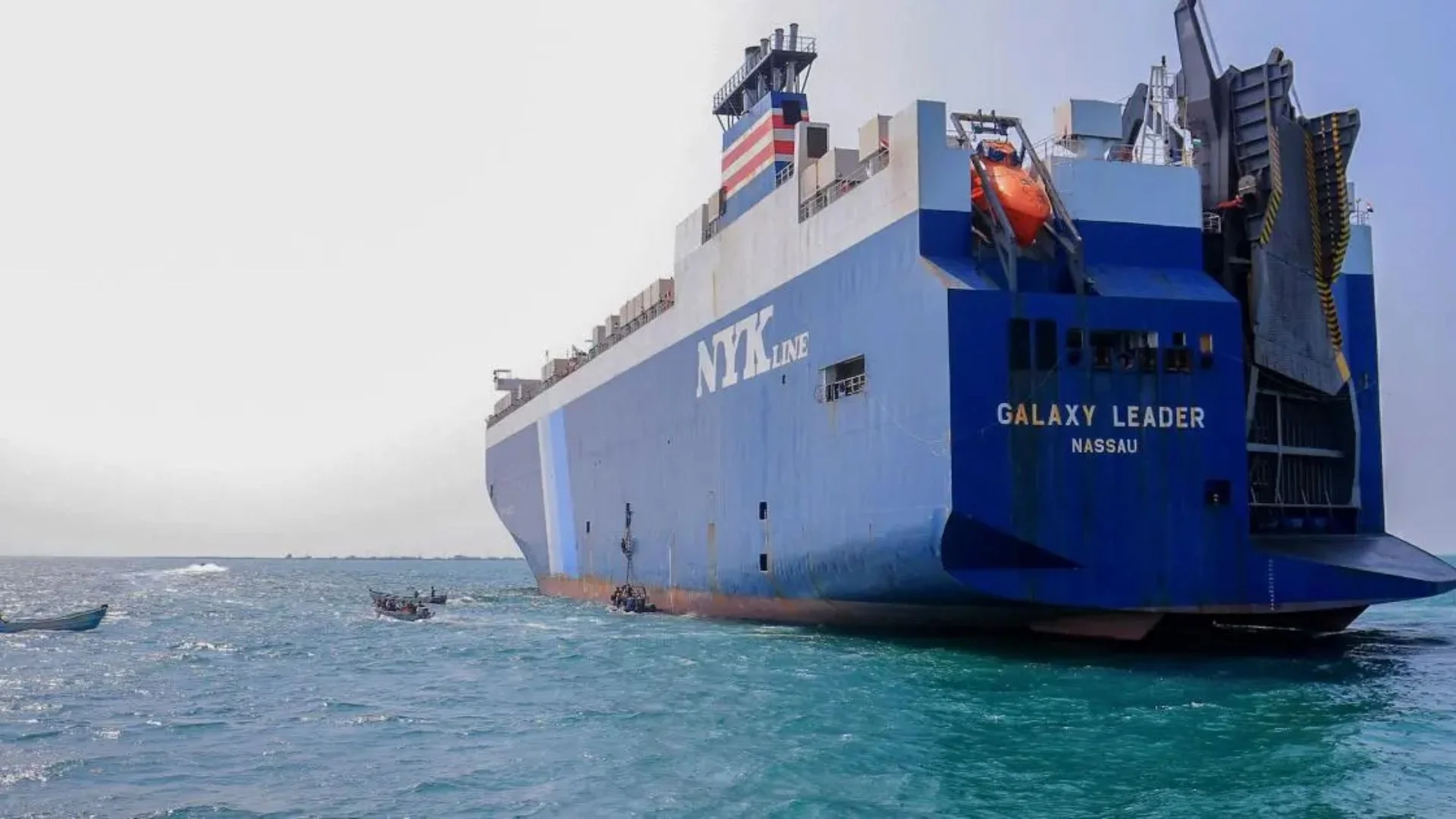A federal regulatory group voted Thursday to officially close king salmon fishing season along much of the West Coast after near-record low numbers of the fish, also known as chinook, returned to California’s rivers last year.
The Pacific Fishery Management Council approved the closure of the 2023 season for all commercial and most recreational chinook fishing along the coast from Cape Falcon in northern Oregon to the California-Mexico border. Limited recreational salmon fishing will be allowed off southern Oregon in the fall.
“The forecasts for Chinook returning to California rivers this year are near record lows,” Council Chair Marc Gorelnik said after the vote in a news release. “The poor conditions in the freshwater environment that contributed to these low forecasted returns are unfortunately not something that the Council can, or has authority to, control.”
Biologists say the chinook salmon population has declined dramatically after years of drought. Many in the fishing industry say Trump-era rules that allowed more water to be diverted from the Sacramento River Basin to agriculture caused even more harm.
The closure applies to adult fall-run chinook and deals a blow to the Pacific Northwest’s salmon fishing industry. Much of the salmon caught off Oregon originate in California’s Klamath and Sacramento rivers. After hatching in freshwater, they spend three years on average maturing in the Pacific, where many are snagged by commercial fishermen, before migrating back to their spawning grounds, where conditions are more ideal to give birth. After laying eggs, they die.
The council is an advisory group to the U.S. Secretary of Commerce, which makes the final decision, but historically has followed the council’s rulings. The secretary’s decision will be posted in the Federal Register within days.
Experts fear native California salmon are in a spiral toward extinction. Already California’s spring-run chinook are listed as threatened under the Endangered Species Act, while winter-run chinook are endangered along with the Central California Coast coho salmon, which has been off-limits to California commercial fishers since the 1990s.
Recreational fishing is expected to be allowed in Oregon only for coho salmon during the summer and for chinook after Sept. 1. Salmon season is expected to open as usual north of Cape Falcon, including in the Columbia River and off Washington’s coast.
They hope the unusually wet winter in California that has mostly freed the state of drought will bring relief. An unprecedented series of powerful storms has replenished most of California’s reservoirs, dumping record amounts of rain and snow and busting a severe three-year drought. But too much water running through the rivers could kills eggs and young hatchlings.

















